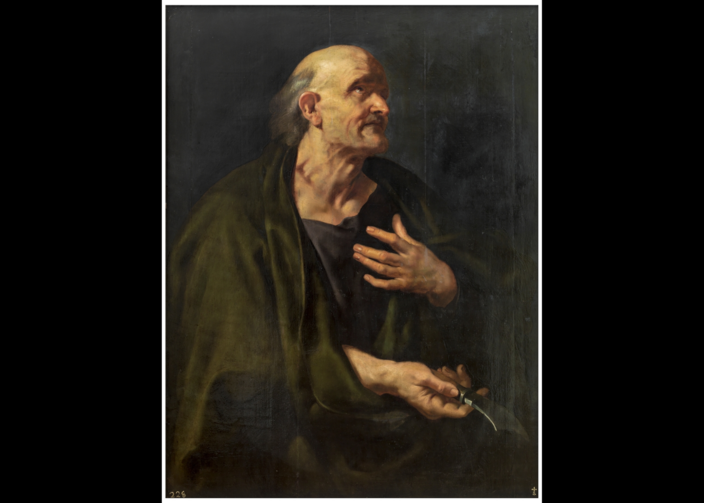A Reflection for the Feast of St. Bartholomew, Apostle
Find today’s readings here.
If you were to consult a university library’s search engine about St. Bartholomew, you would get sent to articles, books and chapters on the Saint Bartholomew’s Day Massacre, not the apostle. It turns out that, tragically, on this date of August 24, 450 years ago, Paris witnessed one of the most horrific massacres in European history: a religiously coded slaughter of innocent people. Historians have pieced together the terror unleashed as Catholic soldiers murdered all Protestants they could find, in many cases going house to house. Today, the estimate is that possibly as many as 3,000 men, women and children were brutally killed in what turned into a week of extreme religiously-motivated violence.
The first results searching for St. Bartholomew turn very dark, very quickly. The history of the massacre makes evident that religious identity markers can often become ways to hide behind religion to unleash ruthlessness and to inflame passions to do the unthinkable. We are witnessing these kinds of massacres and retaliations in their deception and brutality today. This event calls us to mourn.
Much sadder than when we first began, we return to the search.
If you thought that in the many books on the church in the office of a theology professor you would find a reference to St. Bartholomew, you would be wrong. There’s plenty of entries on Barth, meaning the great Karl Barth, renowned Swiss Reformed theologian (1886-1968) who famously denounced the Nazis through authoritative theological documents. Barth was removed from his teaching position in Germany and had to leave after refusing to pledge his loyalty to Hitler. This is a fascinating and courageous Barth but not the Bartholomew we are searching for. Barth calls us to courage.
Continuing our search, we finally find chapters about artworks depicting St. Bartholomew, most notably in Spain, Portugal and possibly the Sistine Chapel, as well as allusions to a medieval legend where he is presented as a pilgrim and an exorcist.
Are we getting any closer? Why is this so difficult?
Well, for one thing, our Gospel reading today doesn’t even mention anyone named Bartholomew. Instead, there are references to a disciple named Nathanael. Scholars think that the Bartholomew mentioned in the lists of apostles of Mark 3:18, Matt. 10:3, Luke 6:14 and Acts 1:13 is the Nathanael mentioned in the Gospel of John. It is only in John’s telling that he speaks and is recognized by Jesus as someone he could trust because “there is no duplicity in him” (Jn 1:47). It is notable that Jesus is appreciative of Nathanael/Bartholomew because this prospective disciple didn’t immediately accept Philip’s declaration that they had found “the one.” Nathanael was skeptical. We are of course surprised when we hear him say, “Can anything good come from Nazareth?” (Jn 1:46). Ouch! And yet, Jesus doesn’t appear upset or rebuke him. No, Jesus praises him. Jesus, the teacher, appreciates his honesty, his unwillingness to simply follow others blindly. As with the story of Thomas, Jesus values the difficult truthfulness of doubt and the vulnerability of asking hard questions. Nathanael calls us to honesty.
So how do we tie these three stories together?
In multiple places in Scripture Jesus denounces fanaticism. He appreciates people who think for themselves and are willing to ask challenging questions. One of the greatest contributions Karl Barth made to the world was to courageously proclaim that the Church could not allow itself to be used as a tool of power by the Nazis, and Christians were obligated to call out the lies and resist.
The Saint Bartholomew’s Day massacre represents the opposite of Nathanael and Barth. That day, the blindness of fanatics and the drive to power brought about excruciating horror from people who claimed to believe in one and the same God. Perhaps the best way for us to celebrate St. Bartholomew’s Feast is to listen to Jesus’ appreciation for truth-telling and to try to emulate Barth’s courage in denouncing those who would hide behind a supposed faith to build their power and subjugate others.
May there be no duplicity in us.








